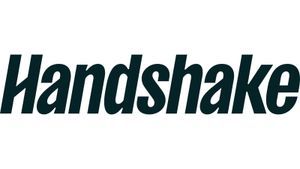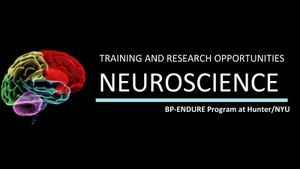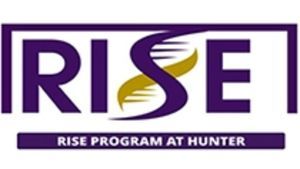FAQs
What if I declared another major before, but now I want to be a Psychology Major?
You can switch your major by completing the Major, Minor, Certificate Declaration & Change Form. Select the replace option and follow the prompts to indicate the major you wish to drop, then select the major you wish to add.
I'm a Psychology Major. May I take a Pass/No Credit grade in any of my major courses?
No, non-letter grades, such as P/NC cannot apply toward the psych major. (This rule applies to all Psychology majors, as of Jan 1998).
How do I declare my major?
Read the Major Declaration section on the undergraduate page, or speak with a department advisor to discuss the curriculum. Make sure to have your transcripts in hand.
Do I have to maintain a minimum grade point average (GPA) in psychology to graduate?
Yes. The minimum GPA is 2.0. Based on the new curriculum (implemented 2017 Fall Term) all psychology courses, including lab sciences, are calculated into the major GPA. DegreeWorks is the primary tool used for degree audits and GPA calculations. DegreeWorks will showcase a block specifically for the major, which will list all of the requirements; courses that meet the major requirements will automatically be plugged into categories in order of completion.
- Courses completed on an e-permit or with non-letter grades of CR/NC cannot be applied to the major requirements.
- Courses completed abroad or approved for an e-permit will only count towards the student's general elective credits; such credits will not count towards the major requirements or major electives.
- Only 200 and 300-level courses taken in residence may be applied to the major.
How do I graduate with Departmental Honors?
Departmental Honors in Psychology requires the student to work under the supervision of a full-time faculty mentor for a full year through successful completion of both PSYCH 396 and PSYCH 398. For more information regarding honors, please see Departmental Honors.
I transferred to Hunter. Must I take all of my minor courses here at Hunter?
No, but you must complete half of your minor (and your major) courses at Hunter.
I took a lot of Psychology courses at my previous school. Do I have to take more Psychology courses at Hunter to graduate with a Psychology Major?
One-half of your major courses (and one-half of your minor courses) must be taken at Hunter, regardless of the number of transferred Psychology credits.
All the Psychology courses I need or want to take are closed. Isn't there some way I can get into a closed course?
The "good news" is that sometimes courses are added to the schedule after the schedule has been printed, so you may actually have more choices than you think.
Even if a course is closed, keep trying to register online. Sometimes, if you’re lucky, someone will have dropped the course and there might be a spot open. This is especially true during the drop/add/change-of-schedule period.
Since psych classes are popular and the rooms are filled to capacity, no one can be added to a closed course. There are no overtallies.
To maximize your chances of getting the courses and sections you want, be sure to register as early as possible. However, some courses and sections close early, so have some back-up choices ready.
How do I get a permit to take a course at another school?
Although it may be possible to take a course "On Permit" at another school, such courses may not be used to fulfill major requirements. Psychology courses taken on permit may ONLY be used as general elective credits, not as psychology credits.
Can any psychology course be taken on permit at another school?
You may not take Psychological Statistics or Experimental Psychology on permit, nor any other course you want to use to fulfill major requirements.
If you have failed a course at Hunter, you may not take that course again on permit; permits are issued very sparingly. For example, no class with a Hunter number above PSYCH 248 may be taken on permit at a 2-year college. Because of prerequisite conflicts, most often, a permit will be permitted only for courses numbered below Hunter's PSYCH 248. Remember, these courses do not fulfill major requirements.
Permits are sometimes approved for upper level courses that are not offered at Hunter. See the advisors about any questions pertaining to permits.
Do I have to come to the Psychology Department to register?
Students enroll through CUNYfirst. Some courses within the psychology major require permission from an advisor, such as PSYCH 248.
Which courses require approval?
Only students taking the following courses must first obtain approval:
-
PSYCH 201 - Independent Study in Psychology *
- PSYCH 248 - Statistical Methods in Psychology
-
PSYCH 295.61 - Special Topics in Neuroscience **
-
PSYCH 306 and 307 - Seminar in Psychological Services **
-
PSYCH 395 - Independent Research in Psychology *
-
PSYCH 396 and 398 - Honors in Psychology *
-
Or any other course that specifies "Departmental Consent Required"
How will repeating a course affect my grade point average (GPA)? What courses may I repeat?
Any course in which you received a grade of D, F, WU or NC may be repeated. If you repeat a course in which you received an F and get a C or better, only the C will be used to compute your GPA. If you repeat a course in which you received a D, both the D and the new grade will be used to compute your GPA (both grades will be averaged into the GPA). Remember, with the new curriculum, no classes to be applied to the major may be taken on a CR/NC basis.
In all cases, both grades will remain on your transcript.
If I've taken a statistics course in another department or at another school, do I still have to take PSYCH 248, Statistical Methods in Psychological Research?
Probably. The statistics courses offered by many math departments are not equivalent to PSYCH 248. If you have questions about other statistics courses you have taken, ask the Undergraduate Advisor in Room 611HN. PSYCH 248 may not be taken on permit.
How do I know if the Psychology courses I took at another college before I came to Hunter will count toward my Psychology Major at Hunter?
Transferred courses which were given a Hunter College equivalence number starting with the prefix PSYCH can be counted toward the major (although they will not be included in your GPA). Psychology courses for which there is no equivalence number cannot be used for the major. If you want to check whether your courses can receive an equivalence number, please see an advisor. Be sure to bring all of your transcripts with you, and a copy of the course description from your previous college's catalog.
I took a lot of Psychology courses at my previous school. Do I have to take more Psychology courses at Hunter to graduate with a Psychology Major?
One-half of your major courses (and one-half of your minor courses) must be taken at Hunter, regardless of the number of transferred Psychology credits.
The Psychology Department is large. Classes are so big, but I'd like to get to know the professors. Is there any way I can become involved and be more than a number?
Absolutely! Come to the department info-sessions and workshops. Subscribe to the psych-l mailing list. Join the Psychology Club and Psi Chi. Take courses such as Independent Study (PSYCH 201), Independent Research (PSYCH 395), Honors (PSYCH 396/398), and the Seminar in Psychological Services (PSYCH 306/307). Talk to your professors about your interests and their research. These possibilities are all discussed during info-sessions, which are held every semester.
Do I have to make an appointment to see an Undergraduate Advisor?
Yes. Advising sessions are held via appointment, which you can book directly through the Navigate app or website for students. See our Advising page for more information.
How do I contact an individual faculty member?
Our Faculty and Staff page contains the office locations, phone numbers and e-mail addresses of all full-time Psychology faculty. To contact a faculty member, try calling or stopping by during the professor's office hours.
How do I find out what grade I got in a Psychology course?
You may do the following:
-
Check your DegreeWorks worksheet. DegreeWorks is your online advising system that breaks down your entire B.A. requirements.
-
Check CUNYfirst Student Center. Grades can be found in the following tabs within Student Center:
-
Grades
-
Unofficial Transcript
-
Request an Official Transcript
-
What can I do with a BA or an MA in Psychology?
Career opportunities exist in a number of fields. Attend the meeting on careers presented by the Department of Psychology. Come in to the advising office for information. Visit the Hunter College Career Development Services as they have countless materials that go over resume and cover letter writing, internship guides, part-time and full-time job postings and more.
Where can I get information about graduate schools, and what should I do if I want to attend graduate school in Psychology or a related field, such as Counseling?
Each semester, the Department of Psychology holds info sessions related to graduate school. You should attend any or all that you can. Visit websites on the world wide web; schools have applications posted there along with information about their programs. Review the specific program's admission requirements as it can be used as a checklist to ensure you are a competitive candidate.
How can I find an internship opportunity?
Visit the Handshake and join millions of students on the best place to get hired.
I am a graduate student, can I apply to this internship?
No, unfortunately we are not accepting graduate students on the program at this time.
Do I have to be a psychology major in order to be placed into a laboratory?
No, we are accepting any science major or minor. However, if you are taking this to fulfill PSYCH 395, you must be a psychology major.
How long should I be prepared to spend on this internship?
The time will be determined by your mentor and you.
How many hours am I expected to work per semester?
- For PSYCH 201: a minimum of 100 hours
- For PSYCH 395, 396/398: a minimum of 126 hours
In short, you are expected to work 6 to 10 hours per week.
What is required if taking this class as an independent study course (i.e. for credit)?
At the end of the project, you will be expected to write a paper. The length and the topic should be discussed with your mentor. Also, you are required to sign a contract in which you and your mentor promise to fulfill the course expectations. You may also be required to attend to laboratory meetings.
If I want to work in a laboratory, do I HAVE to take this as an independent study course (i.e. for credit)?
No, you do not have to take this for credit; you may simply work in someone's laboratory without receiving course credit.
Can I do research work outside of Hunter?
Yes, you can do this. However, if you want to earn credit, you must find a Hunter sponsor.
Which independent study should I sign up for?
- If you have taken PSYCH 250 (Experimental Psychology), you need to take PSYCH 395 (Independent Research).
- If you have not taken Experimental Psych, then you should take PSYCH 201 (Independent Study).
- For honors, take PSYCH 396/398.
Who are the mentors from the psychology department?
Each member of our faculty is a mentor. View Faculty and Staff for a list of our mentors.
What is the correct way of approaching a mentor?
Before you apply for a specific lab:
-
- Know what is the mentor's field of interest and what kind of research he/she does.
- Read their full faculty biography and the articles they have written. Mentors want to know if you understand and are interested in learning what he/she does.
During the interview:
-
- Make a great impression on your potential mentor: Show that you have aptitude and explain why you are interested in working in his/her laboratory.
Keep in mind:
-
- Do not expect the mentors to do the work for you, they will help you, but it is your responsibility to work and learn, and get the experience you need from them.
- Remember that your mentor will be writing recommendation letters for you.
- Your mentor is the person that is going to guide you on your laboratory work, therefore you need to be respectful and refer to them accordingly.
When addressing your mentors:
-
- Address them by their appropriate title. (Most likely Professor or Dr. )
- Be very formal when writing e-mails or letters.
- Check spelling and grammar several times before you send him/her e-mails.
- Be precise and write no more than what is necessary.
Remember: Mentors have full schedules and may not get back to you immediately. You may want to write a follow up e-mail if too much time has passed.
How to find a mentor's research articles
You can find them on any of these sites:
What is a Resume?
A resume is a one or two page summary of your education, skills, accomplishments and work experience. (Career Development Services definition)
What is a Curriculum Vitae (CV)?
A Curriculum Vitae is a brief account of a person's education, qualifications, and previous occupations. It is a Latin phrase meaning 'course of life.' (Oxford dictionary definition)
What are the differences between a Resume and a CV?
The differences between a Resume and a Curriculum Vitae are:
- A resume is a brief summary of your skills and experience, while a CV is a more detailed and extended summary of your academic and work background.
- A resume is mainly used for job applications, while a CV is mostly used for academic purposes.
- A CV is more specific to educational background, and is the most proper way to present yourself when applying for educational or research positions.
Do I need a Resume or a CV when applying for Lab Placement?
You definitely need a CV.
I don't know how to make a CV or a Resume for my application, where can I get help?
Career Development Services has some very helpful links that can guide you step by step during your resume making process:
After I have made my CV, can someone review it for me?
Yes, the Career Center office has counselors that can review your CV. They are located in Hunter's East Building, Room 805.
Career Center Contact:
Phone: (212) 772-4850
Fax: (212) 772-5438
Email: career@hunter.cuny.edu
Office hours: Monday to Friday, 9 am – 5 pm












 The Minority Biomedical Research Support (MBRS) program was initiated at Hunter College in 1981 and in 2000 was changed to the Research Initiative for Scientific Enhancement (RISE) program. RISE provides underrepresented students majoring in biology, biochemistry, psychology and physics opportunities to complete research training. Students participating in the program are provided with financial, research and professional support to prepare them for PhD programs in biomedical sciences.
The Minority Biomedical Research Support (MBRS) program was initiated at Hunter College in 1981 and in 2000 was changed to the Research Initiative for Scientific Enhancement (RISE) program. RISE provides underrepresented students majoring in biology, biochemistry, psychology and physics opportunities to complete research training. Students participating in the program are provided with financial, research and professional support to prepare them for PhD programs in biomedical sciences.